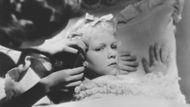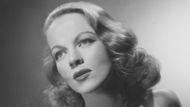Maria Riva, the American actress and writer, died on October 28, 2025. She was 100. Most people knew her as Marlene Dietrich’s daughter, but Maria built her own name on TV and in print. Born December 13, 1924, in Berlin, she basically grew up on film sets. Later, she became one of the big stars of early live television over at CBS.
Maria wasn’t just popular in front of the camera, either. She wrote books that pulled back the curtain on Hollywood and helped keep her mother’s legacy alive. Her run in the 1950s especially stands out as those performances got her plenty of praise. Also, her books gave readers a close-up view of old Hollywood most people never get to see.
Maria Riva's early life and acting career

Maria Riva was born into a family of art and performance. Her mother, Marlene Dietrich, was already an internationally recognized star, and Riva grew up oscillating between Berlin and Hollywood. After immigrating to the United States, Riva began acting at a young age and was tutored in theater before moving to television.
In the 1950s, Riva became one of CBS's most active television actresses. She appeared in dozens of live teleplays, including Studio One, Suspense, and The Philco Television Playhouse. Live television was grueling work, but Riva became one of their most recognized and talented actors. She was nominated for multiple Emmy awards for her work, and worked with some of the leading directors and writers of the era.
By the 1960s, Riva stepped back from acting. She instead focused on her family, and then moved into managing her mother's stage performances and tours. While her acting career was relatively brief, it was impactful.
Her work as an author and legacy keeper

After she left the acting world, Riva transitioned to a writing lifestyle. She published a long biography of her mother, Marlene Dietrich, in 1992. This book went on to become a bestseller and detailed Dietrich’s professional career and private life. Both readers and critics in the 1990s lauded Riva for portraying a fair and evenhanded account of her mother’s life – combining love with objectivity.
In addition to writing the biography of her mother, Riva was involved in other projects in which she honored her mother’s legacy. She produced collections of photographs and edited books of her mother’s works and poetry. Riva’s work helped keep the memory of Dietrich alive for new audiences while also preserving a part of film history that would have been lost.
Maria Riva’s writing career also uniquely reflected her own story of living in the shadow of public fame, while striving to create an identity of her own through her writing. She articulated the highs and lows of her unique upbringing as the child of a global icon in her books and also in interviews.
Love movies? Try our Box Office Game and Movie Grid Game to test your film knowledge and have some fun!
